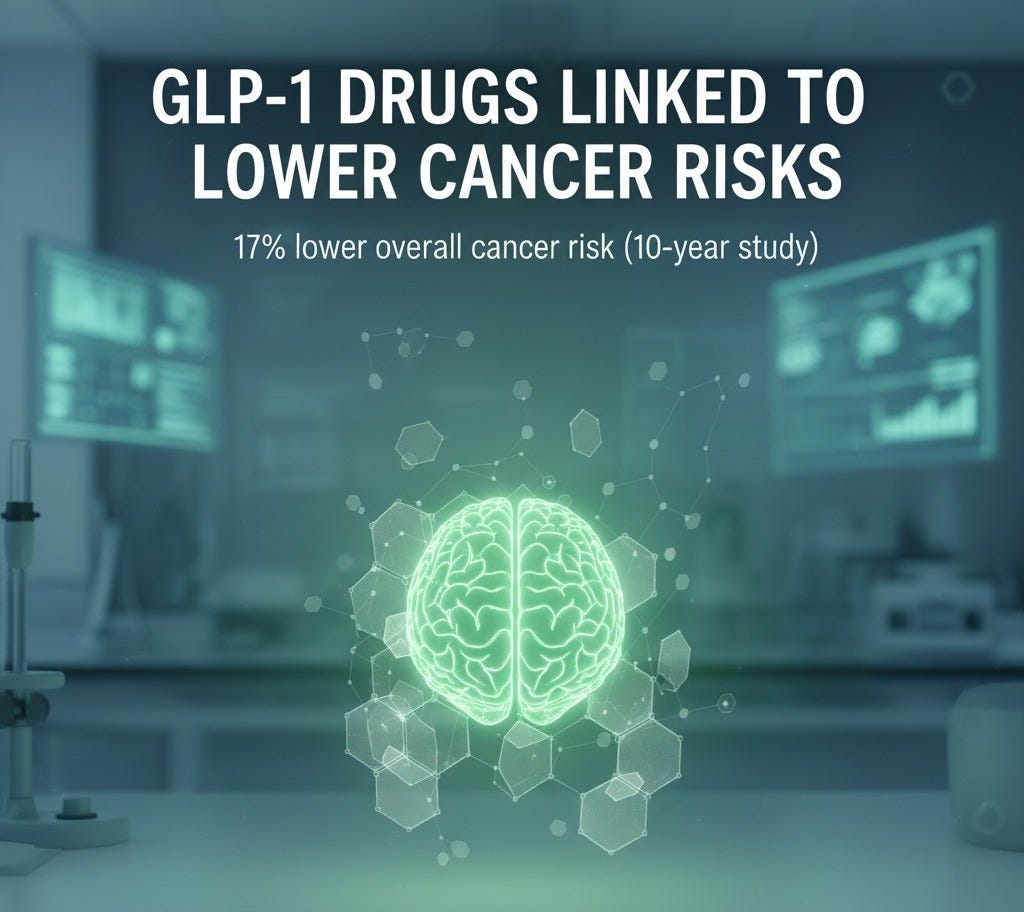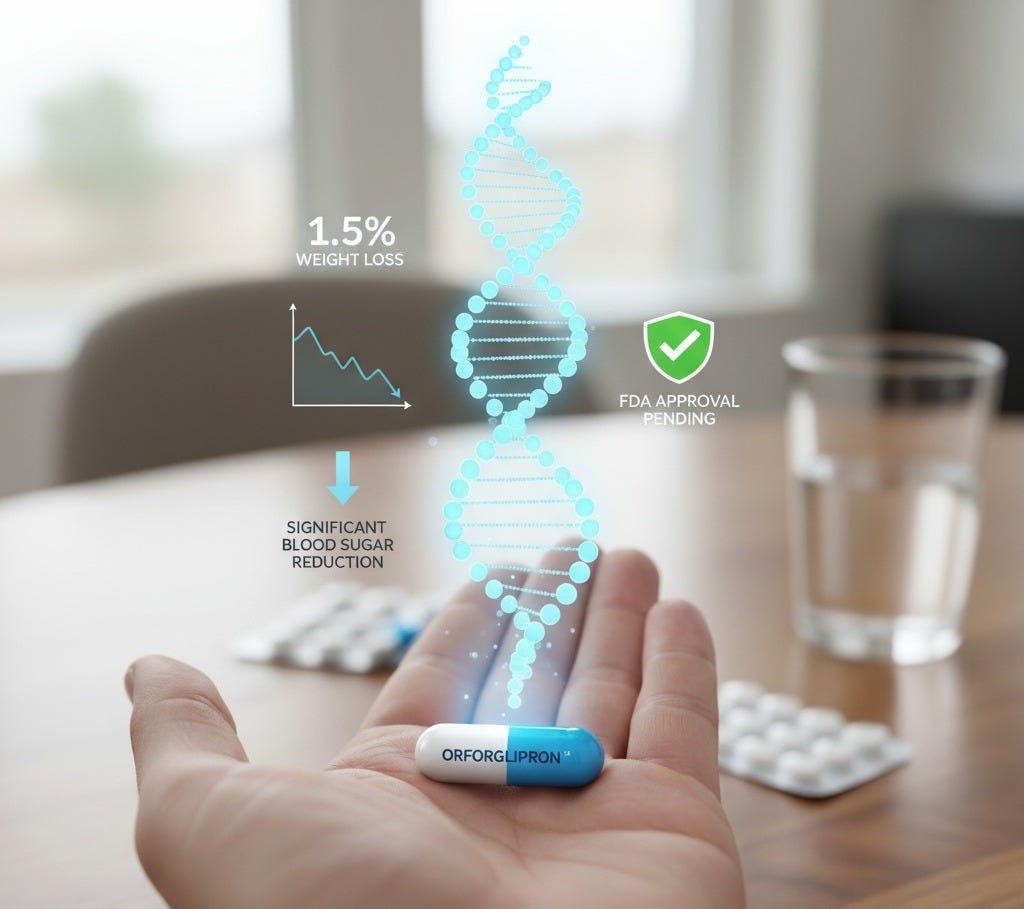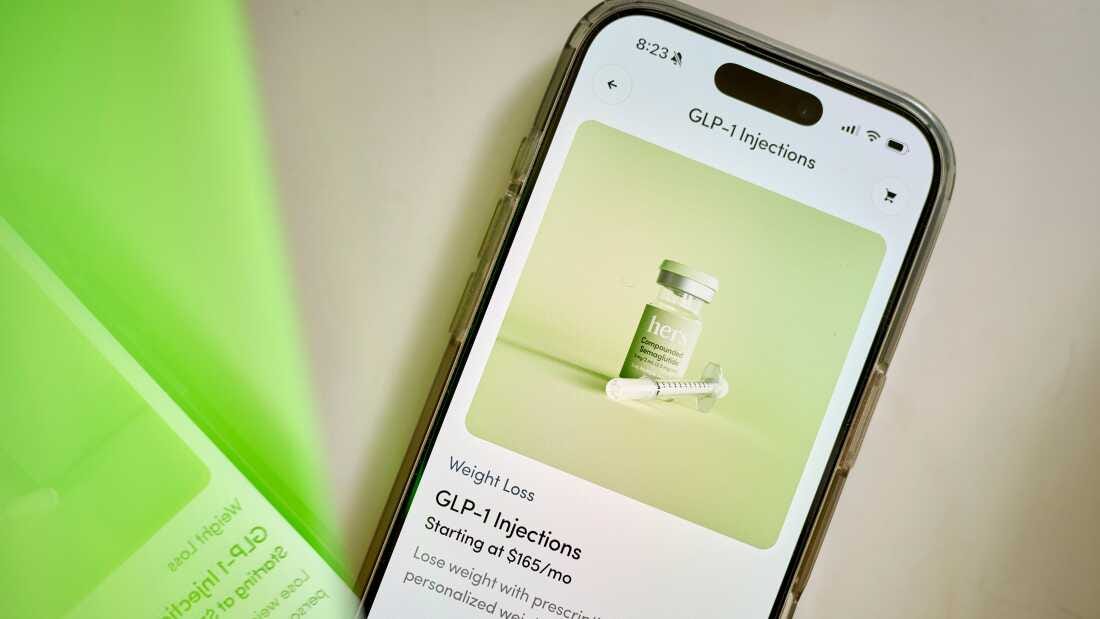The Gut Punch Weekly #30
Universal GLP-1 access could save billions, GLP-1 Drugs linked to lower cancer risks, Lilly's oral GLP-1 advances toward FDA approval, and more!
Top Stories
1) Universal GLP-1 Access Could Save Healthcare Billions
Universal access to GLP-1 drugs like Ozempic could significantly reduce U.S. healthcare spending by preventing obesity, diabetes, heart disease, and other costly conditions.
Widespread use of these medications would likely generate economic benefits that outweigh their costs, especially if prices fall through strategies like bulk government purchasing.
Adopting such an approach is a pragmatic public health investment and could become a cornerstone policy for improving national health and reducing medical expenditures.
2) GLP-1 Drugs Linked to Lower Cancer Risks
GLP-1 drugs for diabetes and weight loss were associated with a 17% lower overall cancer risk in a 10-year study of over 86,000 participants.
Users had significantly reduced risks of endometrial cancer (25% lower), ovarian cancer (47% lower), and meningioma (31% lower).
A slight increase in kidney cancer risk was observed, though it was not statistically significant.
(Reuters)
3) Lilly's Oral GLP-1 Advances Toward FDA Approval
Lilly's oral GLP-1 drug orforglipron achieved up to 10.5% weight loss and significant blood sugar reduction in phase 3 trials for overweight and obese patients with type 2 diabetes.
All three tested doses met primary and secondary endpoints in the Attain-2 trial, with the highest dose helping over half of patients lose at least 10% of their body weight and showing a favorable safety profile.
With complete phase 3 results, Lilly plans to seek global regulatory approval, positioning orforglipron as a leading candidate for the first widely successful oral GLP-1 therapy.
GLP-1 Industry Intel
Novo's Growth Hits Wall, Company Signals Job Cuts: After doubling its workforce during Wegovy’s boom, Novo Nordisk now faces slowing sales, cost pressures, and plans layoffs following a global hiring freeze.
UK Wegovy Demand Soars After Mounjaro Price Hike: Following Eli Lilly's announcement of a 170% price increase for Mounjaro, UK healthcare providers are helping patients transition to Novo Nordisk's similarly effective but more affordable Wegovy.
Food & Wellness Industry Intel
New Boba-Like Beads Could Trap Dietary Fat: Scientists have developed plant-based microbeads that safely trap dietary fat in the gut, offering a promising, side effect-free alternative to weight-loss drugs like Ozempic.
WeightWatchers Focuses on Community Amid GLP-1 Era Changes: After restructuring, WeightWatchers is combining community-driven support with access to GLP-1 weight-loss drugs to stay relevant and attract new members in the evolving weight loss market.
Frontline Focus
Demand Spurs Ozempic Knockoffs, Challenging Pharma Monopoly: NPR's Planet Money explores how the unprecedented demand for Ozempic and similar weight-loss medications has created a market for copycat products.
US-EU Trade Deal Could Raise Branded Drug Prices: A new US–EU trade deal will impose 15% tariffs on popular European-made branded drugs like Ozempic and Wegovy, likely increasing out-of-pocket costs for American patients.
Serena Williams Promotes GLP-1 Use as Ro Ambassador: Tennis legend Serena Williams has partnered with telehealth company Ro as a celebrity ambassador, sharing her personal experience using GLP-1 medications for post-pregnancy weight loss.
Weight Loss Drugs Create Life Insurance Industry Crisis: Widespread GLP-1 use and frequent discontinuation are disrupting life insurance underwriting, leading to stricter applications, coverage denials, and rising premiums for higher-risk applicants.
Cancer Care, GLP-1 Drugs Drive Rising Employer Healthcare Costs: Healthcare costs for employers are projected to rise 9% in 2026, driven primarily by increased use of GLP-1 weight loss drugs, cancer treatments, and mental health services.
GLP-1 Clinical Insights
Tirzepatide Effective for Treating Genetic Obesity from MC4R Deficiency: A new study reveals that tirzepatide, a dual GLP-1 and GIP receptor agonist, effectively reduces weight in people with MC4R deficiency, the most common genetic form of obesity.






